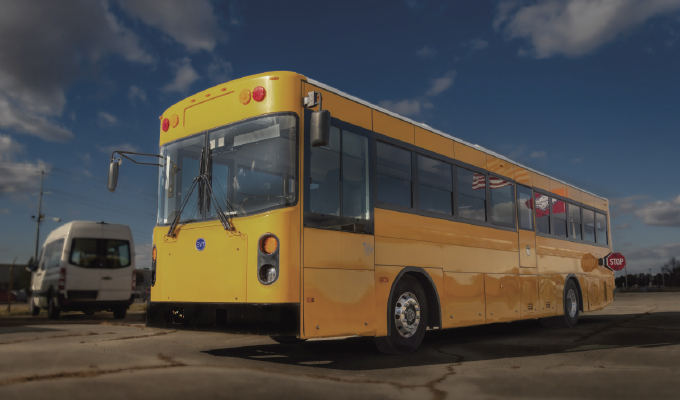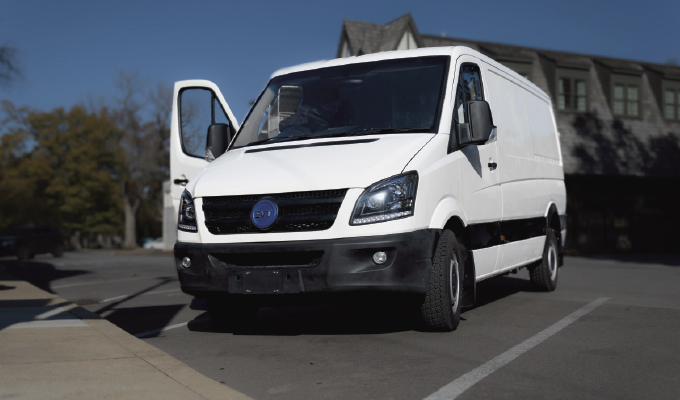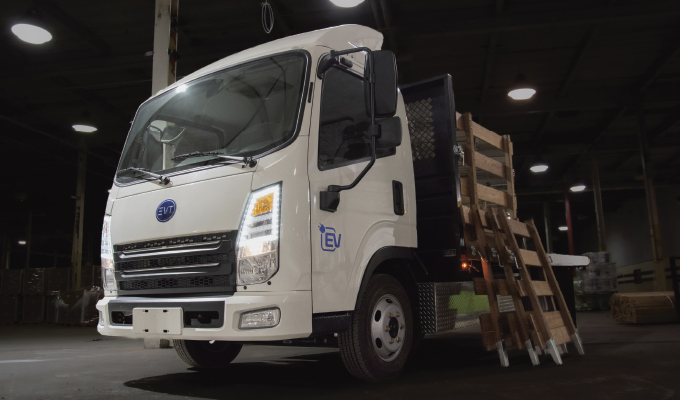New Jersey is charging ahead with its electric vehicle (EV) agenda. In the absence of strong federal support, the state has taken the lead in promoting the adoption of EVs. Now, the Garden State is staking its own claim in the EV future, reinforcing the idea that the real momentum lies with state leadership.
Through programs like the New Jersey Zero Emission Incentive Program (NJ ZIP), the state is not only accelerating adoption of clean commercial vehicles but also setting a blueprint for how individual states can shape their own zero-emission strategies.
NJ ZIP offers vouchers towards the purchase of new, zero emission vehicles ranging from $20,000 to $175,000, depending on the class of vehicle. The program is a $90 million voucher pilot launched by the New Jersey Economic Development Authority (NJEDA) for medium and heavy duty zero-emission vehicles. The pilot is funded by the Regional Greenhouse Gas Initiative proceeds allocated to NJEDA for the purposes of reducing harmful emissions, particularly in communities disproportionately impacted by transportation emissions, and creating economic opportunity within the state.
“Thanks to New Jersey’s NJ ZIP incentives, small business owners can significantly reduce the upfront costs to purchase electric vans and trucks,” says Jason Maddox, president of Envirotech Vehicles. Houston, Texas-based Envirotech is a provider of new zero-emission, purpose-built EVs for commercial and last-mile delivery fleets, school districts, public and private transportation service companies, colleges, and universities.

There are numerous advantages to using EVs for commercial fleets. Logistics fleets can significantly cut fuel expenses while avoiding the unpredictability of fluctuating fuel prices. EVs equipped with electric drivetrains require less maintenance and offer greater longevity compared to traditional internal combustion engine vehicles. EVs also operate with less noise and vibration, making them ideal for early-morning or late-night deliveries and improving comfort for drivers on long hauls.
Features like regenerative braking help capture and reuse energy lost during braking, extending a vehicle’s range, particularly in stop-and-go traffic. Combined with improved battery technology, many commercial EVs now offer up to 150 miles per charge, a distance far greater than the daily mileage driven by most delivery vehicles.
To support New Jersey’s eco-friendly EV initiatives, Envirotech offers a variety of electric delivery vans and truck types that accommodate a range of delivery and logistics requirements and environments. Among these, various types of vans are available, including options for logistics, deliveries, passenger transportation, and ADA-accessible vehicles. Urban trucks are also offered that are designed for efficient navigation in cities including e-commerce deliveries, retail distribution, waste collection, and transporting construction materials.
The advantages of electrifying commercial fleets combined with incentives are spurring early interest and orders. As an example, Envirotech announced in January 2025 that it has taken orders for vehicles for customers awarded vouchers under NJ ZIP. If the customers awarded vouchers elect to purchase a vehicle through the program, the company expects to generate up to $5,275,200 in revenue for the vehicles.
New Jersey has also emerged as a leader in advancing EV adoption through strong incentives and targets for public fleet electrification. The state is committed to transitioning 25 percent of its non-emergency light-duty vehicles to plug-in electric by 2025, with a full conversion to 100 percent by 2035. Additionally, NJ TRANSIT is aggressively pursuing zero-emission goals, mandating that 10 percent of new bus purchases were to be electric by 2024, increasing to 50 percent by 2026, and reaching 100 percent by 2032.
In this category, electric buses offer a quiet, clean transportation experience for riders. With zero tailpipe emissions, the buses significantly reduce air pollution and operate with minimal sound, reducing noise pollution. Depending on the region’s electricity mix, electric buses can produce 1.4 to 7.7 times fewer emissions compared to diesel buses. Recent advancements in battery technology have increased ranges to 100 to 150 miles per charge, making buses a prime candidate for electrification.
Envirotech supports New Jersey’s clean transportation goals by offering electric school and transit buses, providing eco-conscious riders with sustainable, zero-emission alternatives. These vehicles align with the state’s push for greener public transit solutions.

Like the most popular consumer EVs, the OEM’s Bumble Bee EcoRange electric bus utilizes a combination of aluminum for the body and high-strength steel in its construction. Aluminum reduces vehicle weight by approximately 20 percent, which means less energy is required to move the bus, increasing vehicle range. A lighter vehicle also enhances acceleration, braking, and handling.
The aluminum body is 95 percent recyclable, much like a large soda can. Aluminum can be repeatedly melted and reshaped without any loss of its core characteristics or material quality. Recycling aluminum helps prevent additional greenhouse gas emissions in the future.
As the use of EVs expands across New Jersey, the infrastructure needed to charge and support these vehicles is being installed across the state and country.
In anticipation of the need, companies like Envirotech are helping to facilitate the rollout. As an example, in response to increased demand from NJ ZIP customers, the company has expanded the capability of its service center in Manalapan, New Jersey by adding battery balancing, service equipment, and other capabilities. The service center offers multi-point vehicle inspections and repairs, including tires and brakes, which will expedite EV repair and servicing.
“Our efforts in New Jersey serve as a blueprint for future expansion. We plan to grow our network by opening additional dealerships and service centers in other key cities, extending the same high level of service and support to customers across the state and country,” says Maddox.
He points out some additional benefits of electrifying vehicle fleets with financial incentives.
“With available incentives, EVs offer lower upfront costs, less maintenance, and major fuel savings compared to gas-powered vehicles. This results in a clear, lasting benefit to operating budgets,” says Maddox.
for more information
To learn more, visit www.evtvusa.com, email merrick@evtvusa.com, or call (870) 970-3355.




